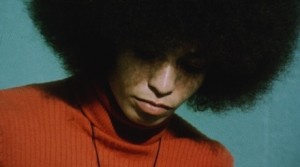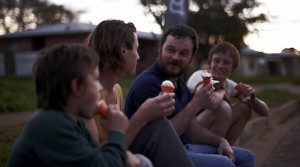Jodie Foster and John C Reilly play Penelope and Michael, arty types and the architects of the meeting. Their son is the victim of an attack in a park with a stick and they have invited Kate Winslet and Christoph Waltz’s well-heeled couple Nancy and Alan to politely make amends for their boy’s actions. Right from the off Polanski and the actors clearly revel in the inflammatory language when Alan takes umbrage at Penelope’s use of the word, “Armed” and later when she claims her son has been, “Disfigured.”
As the day wears on tempers wear thin and the foursome change sides constantly. Polanski deftly pushes his A-list cast around the achingly worthy apartment trapping them in their own self-loathing, petty squabbles and marital problems. When drink is thrown into the mix Polanski jabs his camera in closer to finally spit out the shabby, sexist, racist, snobbery that infects both couples despite their best efforts to deny it ever existed in the first place. This is Polanski at his most wicked and playful and boy what a thoroughly, nasty, raucous, amazing ride it is too.
In the fascinating Swedish documentary, “The Black Power Mix-Tape 1967-1975” a mirror is also held up to another facet of America’s internal struggle with race and class. During the time period mentioned in the title Swedish television crews were continually drawn to document the civil rights movement and its various leaders. Contemporary filmmaker Goran Hugo Olsson has crafted a compelling narrative from the many hours of footage that features such leading figures as Stokely Carmichael, Eldridge Cleaver, Bobby Seale, Angela Davis, Huey P Newton, and Louis Farrakhan.
Olsson attempts to link these luminaries to the present not only by their own testimonies but also through commentaries from contemporary figures such as Erykah Badu and John Forte. Insightful as these are nothing matches the sheer power of the super crisp images from the period: Stokely Carmichael’s eloquent speeches, Malcolm X at the Oxford Union, Angela Davis’ unique, lyrical delivery.
Yet for all of those well-versed speeches and never before seen footage two items truly standout. The first that The Free Breakfast Programme For Children proposed by The Black Panthers was dubbed as “The most dangerous threat to the USA.” The second a heartbreaking interview with a teenage prostitute that best highlights the rabid inequality faced by all poor people in those incendiary years in the richest nation on earth.
Fast forward to the 90s and thousands of miles away in South Australia where the White underclass is featured in Justin Kurzel’s “Snowtown.” Kurzel’s film is a grim, unrelenting version of the infamous Snowtown murders that horrified the Australian public. The film centres on the relationship between the charismatic serial killer John Justin Bunting and Jamie Vlassakis, the son of Bunting’s lover Elizabeth Harvey. Jamie is gradually seduced by Bunting into his warped ideas of natural justice dished out to homosexuals and paedophiles.
The sheer air of menace that exudes from every frame is nothing short of astonishing. “Henry: Portrait Of A Serial Killer” and the more recent “Tony” share “Snowtown’s” inherent grubbiness but what really shocks the audience is how Elizabeth’s young family is so open for abuse by all and sundry. When Jamie and his brothers wake up there always seems to be another sweaty looking stranger inhabiting a corner of their dilapidated house: someone else to help raise the kids or cook them dinner to win their affection and adoration and worse.
Kurzel’s film has more of a post-apocalyptic feel to it than “Mad Max” ever could. Corrugated iron fences, rusting cars and heaps of trash litter the landscape. The pathetic humans that inhabit this world are a million miles away from Ramsey Street in “Neighbours.” They are forgotten, left behind in a sea of ashtrays, heroin and appallingly bad sweaters. “Snowtown’s” score bullies them and the audience until it threatens to tear the screen down in a fit of rage-the perfect accompaniment to Daniel Henshall’s fearless and frightening portrayal of Bunting.



3 thoughts on “LFF Dispatch 2: Carnage, The Black Power Mix-Tape 1967-1975, Snowtown”
Comments are closed.